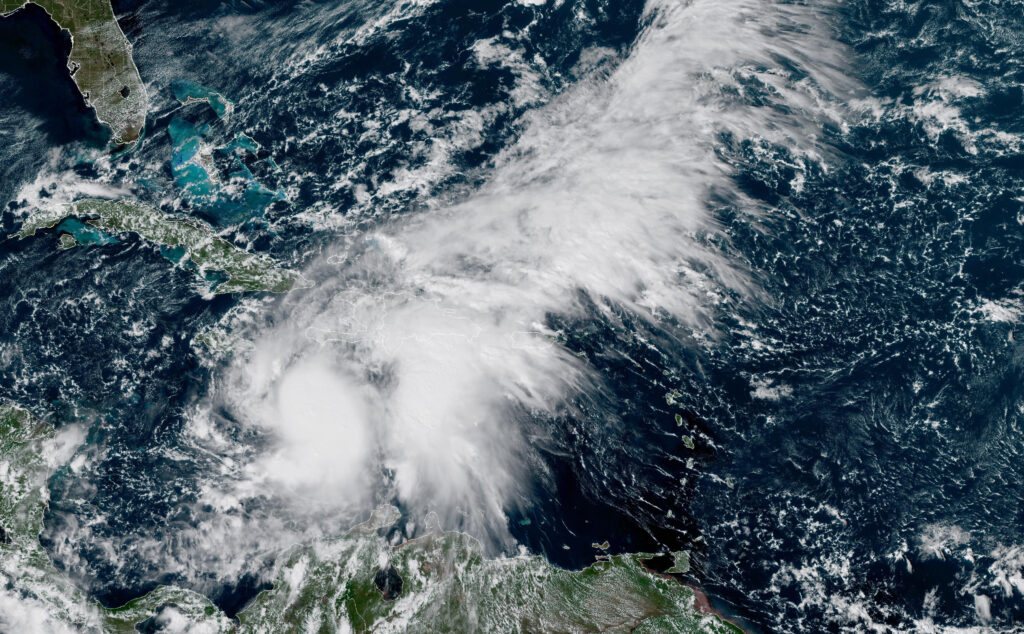
We Are Responding to
Hurricane Melissa
On Tuesday, October 28, Hurricane Melissa slammed into Jamaica’s southwest coast as a devastating Category 5 storm.
Winds as high as 185 miles per hour and storm surges 9 to 13 feet above normal battered the island, leading to dozens of deaths and causing severe damage to buildings, utilities, roads and communications systems. Rainfall accumulations totalling between 30 to 40 inches created catastrophic flooding and landslides. Debris blocked roads, and widespread power and communication outages occurred throughout the island, complicating evacuation efforts and emergency response.
International Medical Corps immediately sent an emergency response team on the island to assess conditions and distribute supplies, working closely with the Ministry of Health and other local partners to determine needs. We continue to support communities and health facilities across Jamaica that are still recovering from this catastrophic storm.
How We're Helping the People of Jamaica
As Hurricane Melissa approached the island, we reached out to our partners there—including Jamaica’s Ministry of Health and the National Healthcare Enhancement Foundation—to coordinate response efforts. We also reached out to local health and emergency partners, drawing on relationships built during our response to 2024’s Hurricane Beryl and during the extensive training we provided in early 2025 to healthcare leaders on mass casualty management and basic emergency care, which helped officials and clinicians better prepare for powerful storms like Melissa.
Before the storm’s landfall, we prepositioned medical, wound-care, hygiene and food supplies. After landfall, we sent an emergency response team to the island who assessed conditions and distributed these goods, working with local partners. The team—which included two doctors, four nurses, one pharmacist and essential logistics and programs personnel—also worked with government officials to assess local needs and service gaps, and provide immediate on-the-ground support.
Our support has continued well past the immediate effects of the storm. In heavily affected Manchester Parish, Mandeville Regional Hospital played a central role in response efforts by absorbing a significant number of emergency and inpatient referrals from other hurricane-affected health facilities. To help the facility absorb this demand, International Medical Corps rehabilitated a temporary space to expand the emergency department and provided more than 250 pieces of medical equipment and supplies, including examination tables and lights, fetal and patient monitors, and more. We also helped provide repairs at Craighead Clinic and Mandeville Primary Healthcare Clinic, enabling them to restore health services to the populations they serve.
May Pen Hospital, in Clarendon Parish, also saw an increase in referrals from other storm-affected health facilities. To help alleviate the pressure, we repaired a space that enabled the hospital to accommodate 30 additional inpatient beds. In Saint Elizabeth Parish, also among the most severely affected areas, we supported three health facilities—Lacovia Health Facility, Balaclava Health Facility and Aberdeen Clinic—by distributing medical equipment and supplies, such as blood-pressure monitors, thermometers and more. These three health facilities, which serve more than 60,000 people, provide a range of critical services, including maternal and child healthcare.
We also provided thousands of hygiene and wound-care kits to the National Healthcare Enhancement Foundation, for distribution across Manchester, Clarendon and Saint Elizabeth parishes.
Your support is urgently needed to continue our response and ensure access to essential services for affected families in remote communities.
Please Help Families Affected by the Hurricane
Donate today to provide medical supplies and services to families affected by this catastrophic storm.
Give now